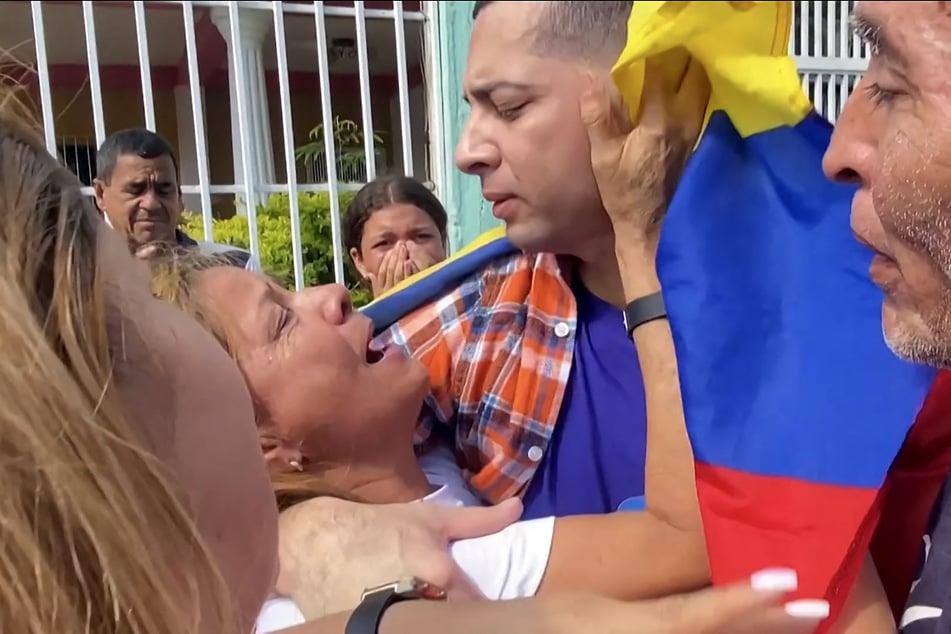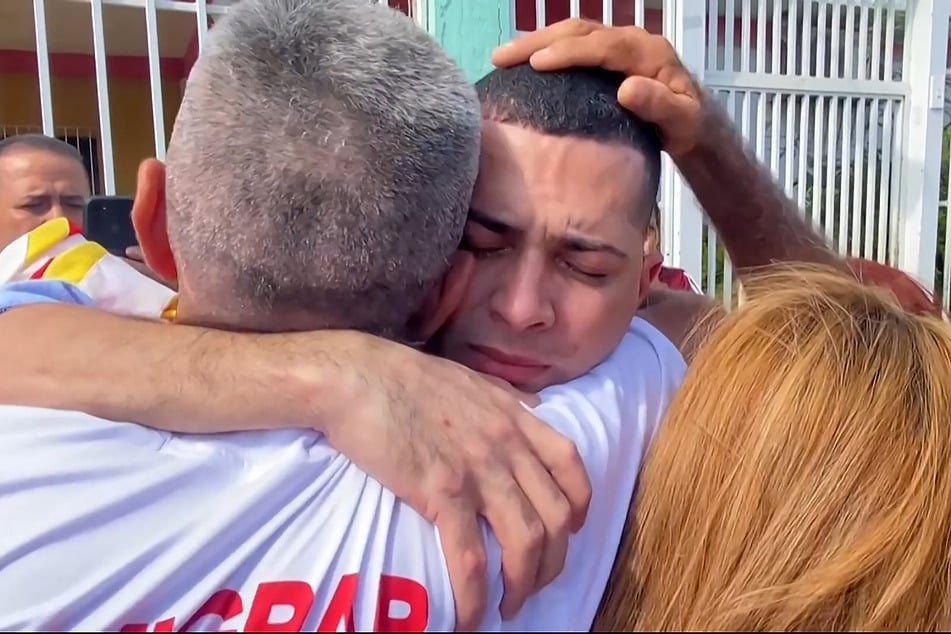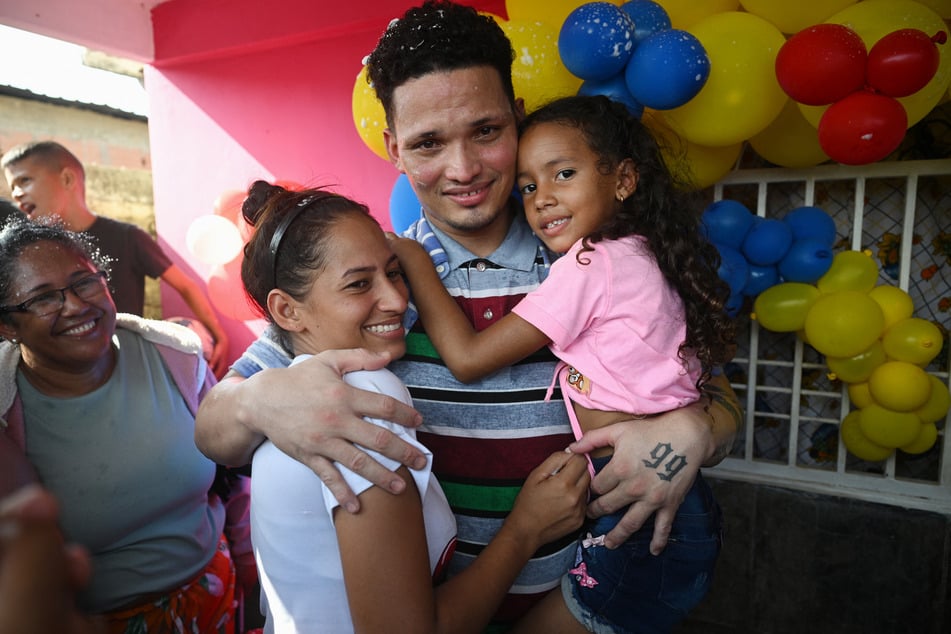Venezuelan migrants make emotional return after "complete torture" in Salvadoran prison
Barquisimeto, Venezuela - Tears of joy and relief flowed freely Tuesday as Venezuelan Maikel Olivera returned home to his mother's embrace after four months of "hell" in a Salvadoran prison.

The 37-year-old is one of 252 Venezuelan migrants flown home last Friday from a notorious "anti-terrorism" prison where they were sent by the US in March in a fear-inducing crackdown on migrants.
Family and friends waited impatiently for Olivera to be released by Venezuelan officials after days of medical tests and questioning, breaking out in tearful cheers and waving Venezuelan flags as they saw a police car finally approaching his family home Tuesday.
"You've come back to life, my love!" Olivera's mother Olivia Rojas exclaimed, hugging her son and lovingly stroking his face before taking a step back to look him up and down for any visible signs of distress.
Cars honked in celebration, and one person in the crowd wore a T-shirt with the slogan: "Migrating is not a crime."
When the clamor died down, Olivera described the CECOT prison he and his compatriots were held at as "real hell."
"There were beatings 24 hours a day," he told AFP of the experience. "They told us: 'you will rot here, you will be imprisoned for 300 years.' I thought I would never return to Venezuela again."
Maikel Olivera details horrific conditions in El Salvador prison

The CECOT was built by Salvadoran President Nayib Bukele, who accepted payment of millions of dollars from Donald Trump's administration to add migrants deported from the US to his prison population in a move widely denounced by human rights groups.
Olivera was arrested in the US just days short of his second month there, accused of being a gang member, held for five months, and then sent to El Salvador with 251 other Venezuelans.
After four months incommunicado at the CECOT, Olivera and the others were finally freed in a prisoner exchange deal with Washington.
Caracas says the men were beaten, shot with rubber bullets, sexually abused, and given rotten food to eat during their incarceration.
The men had been sent to El Salvador despite US officials not providing any evidence for claims that they were gang members, and without any due process on American soil.
The last they were heard of was when Bukele shared images of the men arriving at CECOT in chains, their heads shorn.
Olivera said they were not allowed to receive visits from lawyers or family members.
"I had a friend who was gay, they raped him," he said. "They beat us just for taking a shower."
Returned Venezuelan migrants speak of "complete torture"

Olivera was delivered Tuesday by authorities to the city of Barquisimeto, a more than four-hour drive west from the capital Caracas where the men arrived in two planes last week.
Another four hours west, Mervin Yamarte (29) broke down in tears when he arrived to see his young wife Jeannelys Parra, their six-year-old daughter, and his mother, Mercedes, among an excited, 300-strong welcoming committee.
"It was complete torture what we were enduring, I have many marks on my body," he told AFP.
Mercedes Yamarte (46) had worked for days to prepare a special meal and decorate her humble home with balloons in the colors of the Venezuelan flag.
She had raised a banner outside reading: "Welcome to your homeland, you were missed."
Also in Maracaibo, Yarelis Herrera (45) was overcome at being reunited with her son Edwuar Hernandez, who she said appeared "very changed" by his experience. "He looks more like a man now."
He is 23.
Olivera, Yamarte, Hernandez, and many others risked the dangerous journey to the US to find work and send money home to Venezuela.
"They have no record of criminal activity, nothing. Humble people seeking a better future who ended up in this nightmare," Mervin Yamarte's younger brother Jonferson told AFP of the migrants' grim fate.
He had escaped a similar fate by returning home from the US on a humanitarian flight organized by Caracas.
Cover photo: Collage: Ramon VELIZ / AFPTV / AFP & Federico PARRA / AFP

